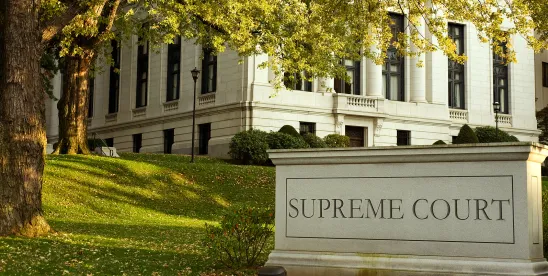On June 28, 2024, the U.S. Supreme Court issued a landmark ruling overturning “Chevron deference,” a tool for interpreting ambiguous statutes administered by administrative agencies. The 40-year-old Chevron doctrine held that, where a court finds a statute to be silent or ambiguous on a particular matter, the court must defer to the relevant agency’s construction of the statute if that construction is “permissible.” The Supreme Court’s decision in Loper Bright Enterprises v. Raimondo now rejects any such deference to the agency and requires courts to apply their own construction of the silent or ambiguous law, even if the agency’s contrary view is reasonable and “permissible.”
Under Loper, courts should still consider the views of expert agencies as relevant to the proper construction of silent or ambiguous statutes, but courts will now need to make their own determinations without accepting the agencies’ views.
The full scope of the new ruling’s future impact is unclear, because the old version of Chevron deference would not have applied to all judicial cases involving federal regulatory agencies. However, eliminating deference to the relevant administrative agency could encourage courts hostile to agencies’ regulatory power and increase uncertainty of outcomes where truly ambiguous statutes must be construed by multiple courts throughout the country, without deference to a single administering agency.
It is unclear whether, or to what extent, Chevron deference and the new ruling overturning it should directly apply in resolving the current lawsuits challenging certain new rules that the SEC has adopted in the last two years, such as the new rules on climate-change disclosure by public companies. However, the overall tenor of the Supreme Court has been to constrain the authority of regulatory agencies, as also illustrated by:
- the June 27, 2024 decision in Securities and Exchange Commission v. Jarkesy, which held that the SEC cannot use its own administrative tribunals to prosecute enforcement cases seeking civil penalties, and
- the July 1, 2024 decision in Corner Post, Inc. v. Board of Governors of the Federal Reserve System, which held that the six-year statute of limitations under the Administrative Procedure Act (the “APA”) accrues not when a challenged regulation is adopted but only when a plaintiff is injured by final agency action.
This overall trend in Supreme Court jurisprudence could in a more general way influence the views of lower courts and result in an increase in judicial challenges to the actions of the SEC and other U.S. regulatory agencies.
The Loper decision was based on the Court’s construction of the APA, rather than on constitutional grounds. Thus, Congress theoretically could overturn Loper and reinstate deference to administrative agencies, particularly by delegating to them the authority to make and construe regulations. In today’s political climate, however, the necessary votes probably do not exist for such legislation. Moreover, Justice Thomas, who concurred in the majority’s Loper opinion, wrote separately to opine that deference to administrative agencies also violates the Constitution’s separation of powers. Thus, one could expect to see litigants raise constitutional arguments against a new version of Chevron deference even if Congress were to reinstate it legislatively.





 />i
/>i

